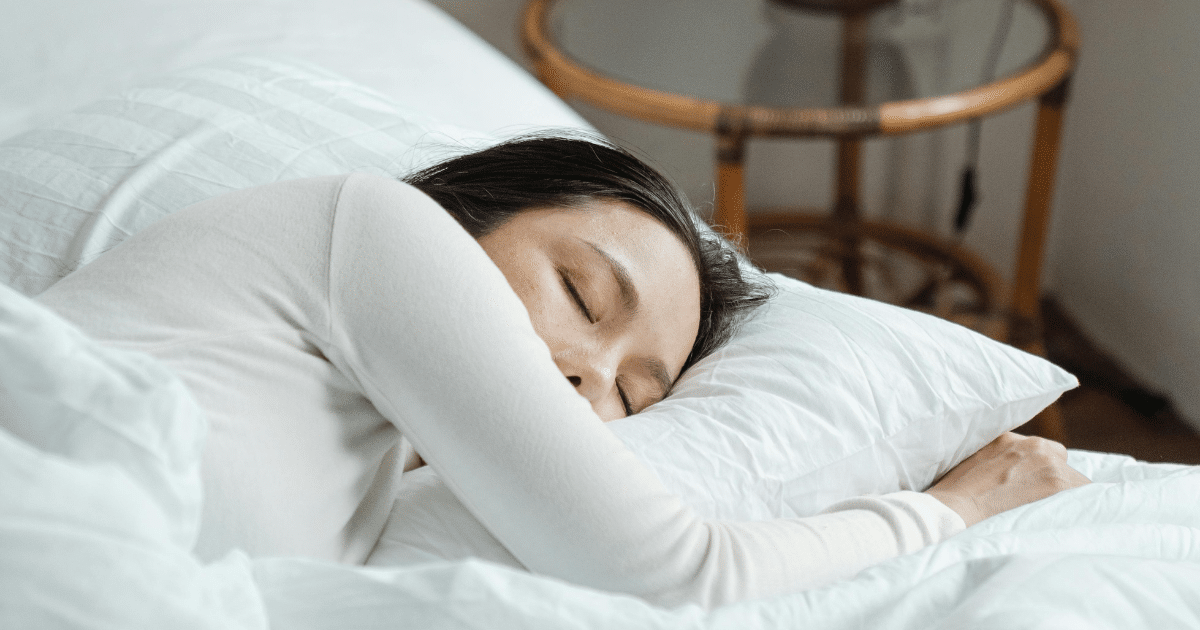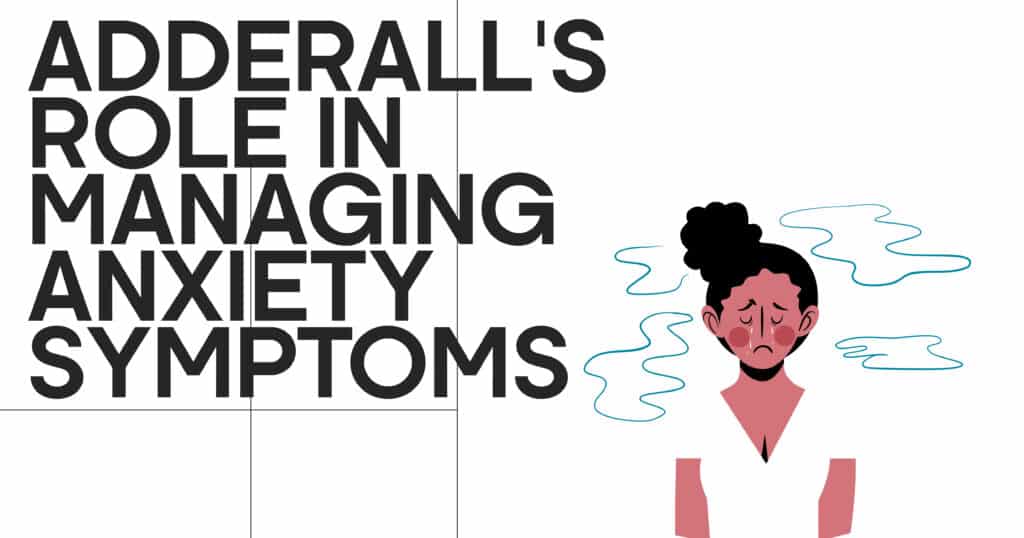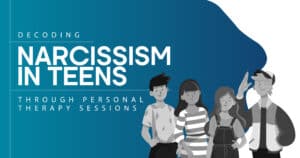When you think of Adderall, your brain probably goes straight to ADHD, right? Hyperactivity, focus, and staying on task. Not exactly the first drug you’d link to anxiety relief.
But if you’re juggling both ADHD and anxiety (which is very common), you might have asked yourself the question, “Can Adderall help with anxiety, or is it just making things worse?”
Well, the answer isn’t simple. Sometimes Adderall calms your anxiety. Other times, it ramps it up. And for a few people, it’s just not as effective.
This guide breaks it all down, the good, the bad, and the confusing truths about Adderall anxiety symptoms, what they mean, and how to find some Adderall anxiety relief that actually works.
Understanding Adderall’s Effects on Anxiety
Adderall is a stimulant made from amphetamine salts. It increases the brain’s production of dopamine and norepinephrine.
For people with ADHD, this can calm things down. Your thoughts get clearer. Suddenly, tasks feel doable.
But for others, this dopamine kick can be extreme. You might experience your heart racing. This is a classic sign of adderall anxiety effects.
California Mental Health
Can Adderall Help With Anxiety Symptoms?
If your anxiety is a side effect of your ADHD, Adderall might be beneficial. But Adderall might make things worse. This is especially true for Generalized Anxiety Disorder or panic attacks.
| Type of Anxiety | How Adderall Affects It | What Might Work Better |
| ADHD-related anxiety | Often improves | Stick with Adderall + lifestyle tweaks |
| Primary anxiety disorder | Can worsen | Try anxiety-specific medications like SSRIs |
| Performance-related anxiety | It can go either way | Pair with therapy or CBT for better results |
So yes, Adderall anxiety treatment isn’t one-size-fits-all. That’s why having a doctor who gets both ADHD and anxiety is key.

Adderall Anxiety Symptoms and Their Impact
If you’re on Adderall and suddenly feel like you’re vibrating with nerves or spiraling into panic mode, you might be dealing with Adderall anxiety symptoms.
Here’s what they can look like:
Physical effects:
- Heart pounding for no reason
- Shaky hands or a tight jaw
- Feeling hot or sweaty
- Not being able to sleep
- Tension headaches or clenched muscles
Mental/emotional effects:
- Racing thoughts or worst-case-scenario thinking
- Feeling like you can’t sit still
- Getting irritated over tiny things
- Panic attacks or that “impending doom” vibe
A lot of people feel this early on, especially when they first start the medication or increase their dose. Sometimes it goes away after a few weeks. But sometimes? You need a new game plan.
Adderall Anxiety Medication for Effective Treatment
Using Adderall anxiety medication as part of your treatment plan isn’t just a plug-and-play situation. Everyone’s brain is different, so it really comes down to finding what works for you. The goal? Managing ADHD without letting anxiety crash the party.

Here are a few ways docs usually fine-tune things:
- Lower the dose a bit: Sometimes, just dialing it back can ease the anxiety without killing your focus.
- Tweak the timing: Taking it earlier in the day might stop it from messing with your sleep or making you feel weird at night.
- Add something for the anxiety: If it’s still a struggle, your provider might pair Adderall with a low-key anti-anxiety medication to balance things out.
- Try a different ADHD medication: Not all ADHD medications work the same. Some are gentler and might not stir up your anxiety as much.
| Strategy | Why It Helps | What to Watch Out For |
| Lowering the dose | Less stimulation, less anxiety | Might not control ADHD as well |
| Adjusting the timing | Prevents sleep problems and late-day anxiety | You’ll need a set routine |
| Adding anti-anxiety medications (like SSRIs) | Can smooth out the ride | Risk of drug interactions |
| Switching to a different ADHD medication | Some are gentler on anxiety | Trial and error involved |
The bottom line is that you don’t have to choose between focus and peace of mind. With the right support, you can have both.
California Mental Health
Strategies for Adderall Anxiety Management and Relief
Managing Adderall anxiety symptoms sometimes needs more than just medications. You might also need to make lifestyle adjustments to get yourself back. Lifestyle changes can help you get the best out of your ADHD treatment while minimizing anxiety-related side effects.
You can try these out:
- Move your body: A quick walk or workout clears that anxious energy and boosts endorphins.
- Eat real food: Blood sugar crashes cause mood crashes. Keep snacks handy.
- Sleep: You can’t fight anxiety with 3 hours of sleep.
- Limit caffeine: Adderall and coffee cause jitteriness.
- Try breathwork or meditation: It doesn’t have to be deep. Just sit and breathe.
Timing Tricks That Make a Difference
- Take it at the same time every day: Keeps things steady so you’re not riding a rollercoaster of focus and crash.
- Don’t take it too late: Unless you enjoy staring at the ceiling at 2 a.m.
- Try it with food: Helps tone down the jittery, sour-stomach vibes some people get.
- Schedule the serious tasks for your “on” hours: That sweet spot when the medications kick in? Perfect for tackling your to-do list.
| Habit | How It Helps | When You’ll Notice a Change |
| Daily exercise | Reduces cortisol and adrenaline | 1–2 weeks |
| Meditation or deep breathing | Lowers nervous system reactivity | A few days of practice |
| Sleep schedule | Improves mood and focus | Within a week |
| Cutting caffeine | Reduces restlessness | Almost immediately |
Exploring Adderall Anxiety Support Options
If you’re deep in the adderall anxiety help spiral, the best thing you can do is talk to someone who knows their onions on mental health, not just a GP who hands you a script and bounces.
Here are your best bets:
- Psychiatrists: For drug adjustments, combinations, and fine-tuning
- Therapists: Especially ones trained in CBT or ACT (they work wonders)
- Support groups: You are not the only one dealing with this
- ADHD coaches: They help with routines, structure, and actual life issues
According to the National Institute of Mental Health, ADHD and anxiety often show up together, and the best results happen when both are treated side by side, not in isolation.
Seeking Adderall Anxiety Help
Here’s when you should definitely reach out for adderall anxiety support:
- You’re having panic attacks or feel out of control
- Sleep has gone completely out the window
- You’re snapping at people for no reason
- Work, school, or relationships are taking hits
- You’re feeling low or hopeless (get help ASAP. The sooner the better)
Before your next appointment:
- Jot down when the anxiety hits (after medications? before sleep?)
- Write out any side effects, even small ones
- Be honest, no sugarcoating
You deserve a treatment plan that works for you, not one that makes you feel worse just to “stay focused.”
Connect With CA Mental Health for Guidance
If all of this feels a little overwhelming, then it’s your cue to find help, and help doesn’t come any better than us.
Our team at CA Mental Health knows the ADHD and anxiety combo inside out. Whether you’re struggling with adderall anxiety effects, need help tweaking your medications, or just want someone to talk to who understands, we’re here for you.
We offer ADHD and anxiety assessments, personalized medication management (no more guessing games), therapy sessions that actually help, and long-term support, not just a quick fix
So if you’re tired of managing this on your own, reach out. Your mental health matters! And the right support can make all the difference. Reach out to us today to get started.
California Mental Health
FAQs
How does Adderall anxiety treatment compare to other medications?
Adderall can help if your anxiety is tied to ADHD, but it’s not usually the first choice for anxiety. Things like SSRIs tend to be more effective and steady for general anxiety.
What are common Adderall anxiety symptoms to watch for?
Feeling on edge, overthinking everything, racing heart, tight chest, that ca n’t-sit-still energy. If you feel more wired than focused, that’s a red flag.
Can Adderall anxiety effects lead to long-term issues?
Yes, it can. If you’re always in a hyper mode, it wears you down. Your sleep gets affected, your moods swing, and eventually there’s brain fog.
What strategies are effective for Adderall anxiety management?
First, talk to your prescriber about lowering the dose, don’t take it late in the day, and learn to breathe. And finally, eat, hydrate, and sleep. Basics matter way more than we admit
How can one access Adderall anxiety support for better mental health?
Start with a good mental health team like CA Mental Health. One that doesn’t just toss medications at you but helps you figure out what’s really going on and how to feel better.







